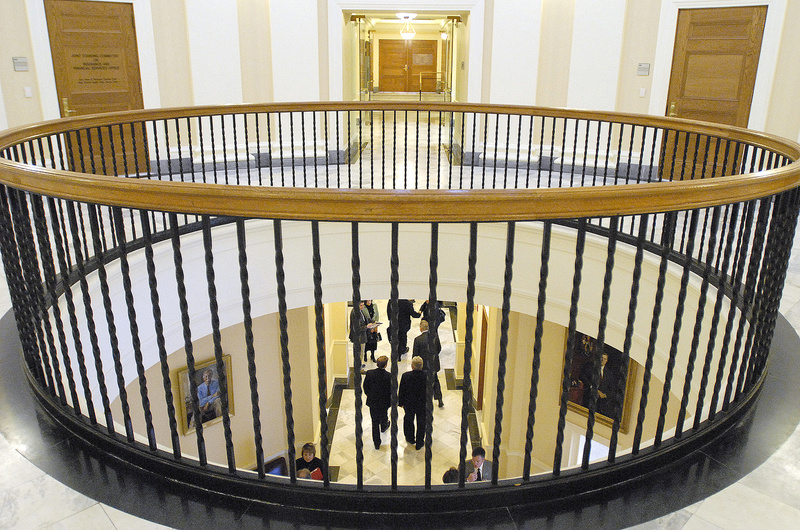Lawmakers trying to push a long-range tax reduction scheme through the Legislature should have to answer a question: What’s the rush?
L.D. 849 would gradually reduce the tax rate over time, forcing future legislatures to make do with ever-shrinking revenue, regardless of the costs of goods and services that tax money is used to buy.
The ultimate goal, cutting the top income tax rate in half to 4 percent, could be decades away. But this long-range vision that would tie the hands of future legislatures is on a fast-track through the Legislature, without even a public hearing. That was the kind of heavy-handed move Republicans didn’t like when they were in the minority, but they appear to be poised to try the same thing now.
And that’s a bad idea, because this is an issue that deserves careful balancing with a variety of different interests.
Cutting income tax rates does not necessarily mean Mainers will pay less in taxes. Future legislatures could increase sales taxes, for instance, or push more responsibility over to municipalities and school districts that rely on property taxes.
The amount of money an individual spends on taxes could keep going up as the tax rate goes down. This bill sounds like the same kind of government-by-formula that Maine voters turned down in three different tax reform referendums, including two versions of the Taxpayers Bill of Rights.
In each case, voters said they wanted elected officials to make the decisions, and not put government on autopilot.
The strangest part of this is that this Legislature can – and has – cut taxes and spending. Members are currently working with a supplemental budget proposal that calls for a total of $38 million in spending cuts in next year’s budget. In addition, the governor has proposed cutting the taxes on pensions in 2014.
Lawmakers don’t need a formula to make that happen: They just have to do it. Republicans have the votes to cut spending and lower taxes and don’t have to answer to anyone but the voters.
Passing this far-reaching limit on future lawmakers without spending some time to work through the potential consequences is a bad way to make public policy.
Members of the House of Representatives would be wise to ask for a time-out when the bill comes to them (as soon as today) and consider whether this bill is really the right way to reduce the tax burden.
Copy the Story LinkSend questions/comments to the editors.



Success. Please wait for the page to reload. If the page does not reload within 5 seconds, please refresh the page.
Enter your email and password to access comments.
Hi, to comment on stories you must . This profile is in addition to your subscription and website login.
Already have a commenting profile? .
Invalid username/password.
Please check your email to confirm and complete your registration.
Only subscribers are eligible to post comments. Please subscribe or login first for digital access. Here’s why.
Use the form below to reset your password. When you've submitted your account email, we will send an email with a reset code.